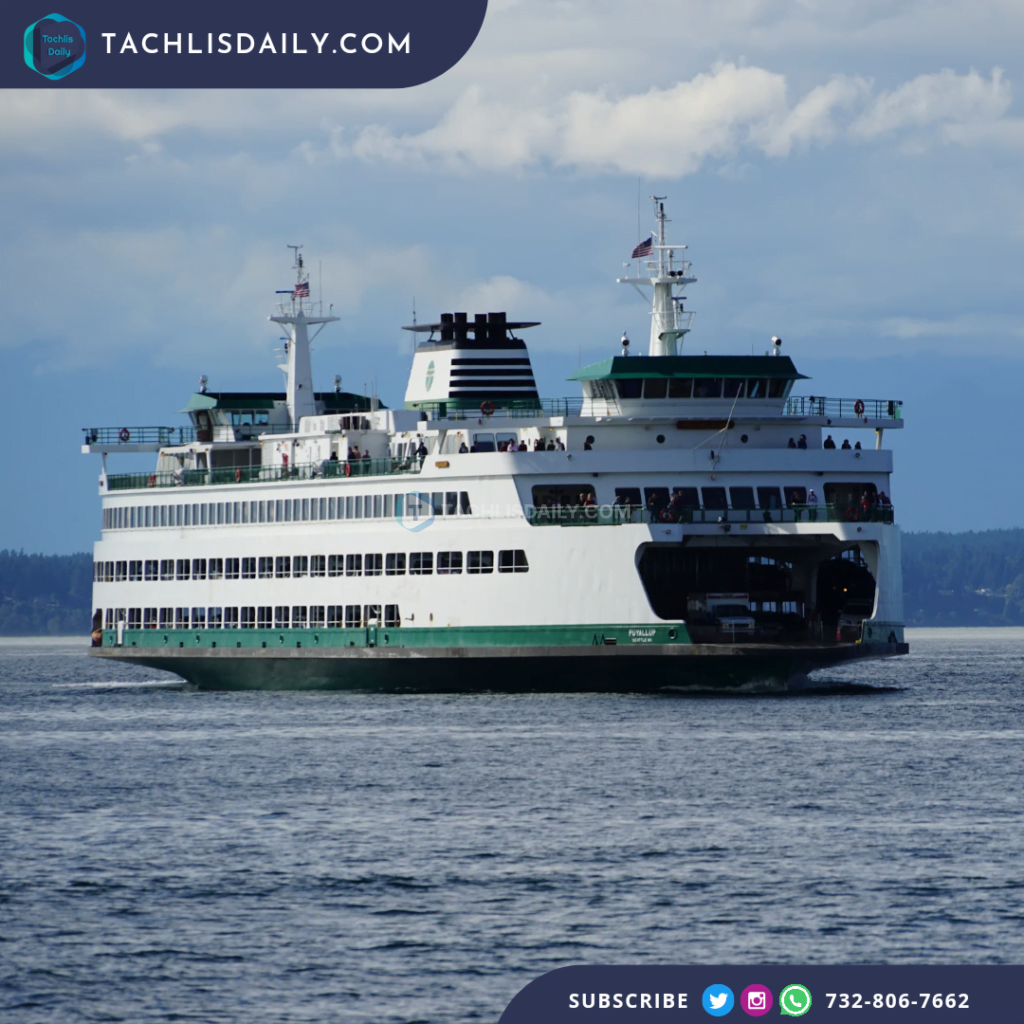U.S. Senator Cory Booker (D-NJ) announced a $20 million grant award from the Federal Transit Administration’s (FTA) Electric or Low-Emitting Ferry Pilot Program to the Delaware River and Bay Authority (DRBA) to replace an over 40-year-old diesel engine ferry that serves passengers who travel between North Cape May, New Jersey and Lewes, Delaware with a diesel-hybrid ferry. Additionally, NJ TRANSIT will receive a $6.3 million grant from the FTA’s Passenger Ferry Grant Program to install new equipment that will build resilience at NY Waterway’s (NYWW) Weehawken Ferry Maintenance facility. These two awards from the FTA’s FY24 Ferry Grant Program were among 18 announced by the Biden Administration.
Senator Booker wrote in support of both of these projects earlier this summer. This funding for the Cape May – Lewes Ferry will help DRBA’s efforts to transition its ferry fleet to provide an environmentally sustainable ferry service by lowering carbon emissions. The funding for NJ TRANSIT will allow NYWW to acquire and install a new wave attenuator that will play a critical role in preventing waves, high tides and floods from harming vessels and impacting service.
The Cape May – Lewes Ferry began operations on July 1, 1964 and has carried more than 50 million passengers, and has long been a significant catalyst for economic growth and regional tourism activity in New Jersey and Delaware. The diesel-hybrid ferry will operate with lower emissions compared to a diesel ferry, and it will allow zero-emission operations while near port and while docked.
“The Cape May – Lewes Ferry has been a vital link between New Jersey and Delaware for decades, and this funding is an investment in a cleaner, more efficient transportation system that will reduce emissions and strengthen our Booker Announces $26.3 Million in Federal Grants to Modernize and Enhance Sustainability of New Jersey’s Ferries economy,” said Senator Booker. “Modernizing this ferry with diesel-hybrid technology is an important step toward making our infrastructure more sustainable for generations to come.”
“I’ve long supported replacing diesel engines with cleaner-powered engines to help improve our air quality and protect public health while lowering greenhouse gas emissions,” said Senator Carper, chair of the Environment and Public Works Committee in the U.S. Senate. “Hundreds of thousands of people depend on this ferry route every year, and I’m glad we are making investments into cleaner operations that our passengers, operators, crew members, and folks who live and work around the terminals can enjoy.”
“On behalf of the Delaware River and Bay Authority, I want to thank the Delaware congressional delegation for their collective and persistent efforts to obtaining this vital federal funding to construct the next generation of vessels for the Cape May – Lewes Ferry,” said DRBA Executive Director Thomas J. Cook. “We expect our naval architects to complete the vessel final design package of the new vessel by year’s end and we expect to solicit bids to begin construction of this first vessel in 2025 so the timing couldn’t be better. Our goal is to improve service and reduce operating costs while laying the foundation for sustainable ferry operations for the next generation of our customers.”
NYWW maintains a fleet of 37 ferry boats at their maintenance facility in Weehawken, New Jersey, transporting 20,000 daily passengers across 24 ferry routes. Rising sea levels in New York Harbor have resulted in higher tides and higher intensity waves, causing NYWW to frequently shift their vessels around the facility to minimize damage. A new wave attenuator is essential to protect both the fleet and the new facility from this threat and ensure safe and reliable service. This funding will not only protect NYWW’s ferry vessels and shoreline infrastructure but will also protect homes and businesses in the immediate vicinity.
“This funding for NJ TRANSIT will help protect NY Waterway’s Weehawken facility from the increasing threats posed by rising sea levels and severe weather,” said Senator Booker. “Installing new equipment to protect the ferry fleet and maintain reliable service will help ensure thousands of daily commuters can continue to depend on New Jersey’s ferries. I am proud to have helped secure this funding that will strengthen our infrastructure and keep our ferries running.”
“New Jersey’s economy continues to grow in large part due to the continued investments in our transit infrastructure helping pave the way for the jobs of today and tomorrow. Thousands of hard-working New Jerseyans rely on NJ Transit’s ferry services every single day and they deserve safe and reliable transportation,” said Senator Helmy. “Improving the resiliency of our ferry infrastructure is a key component of a robust multimodal transit system that meets the needs of our residents. I am grateful that the New Jersey congressional delegation continues to bring home essential resources and prioritizes our nation’s transportation infrastructure to improve commuters’ daily travel experiences.”
“NJ TRANSIT is pleased to have supported NY Waterway in securing this federal funding, which will enhance the safety and reliability of ferry services at Weehawken. Ferries are an integral part of our state’s transportation network, providing critical connectivity and mobility every day for thousands of New Jerseyans,” said NJ TRANSIT President & CEO Kevin Corbett.
“The funding and construction of the wave attenuation screen is a critical step in ensuring the safety and modernization of our ferry maintenance facility. This structure serves the needs of the ferry system and the thousands of passengers we serve, as well as the need for resiliency protection of property along the neighboring shoreline. We are most grateful to our state and federal partners for recognizing these needs through their support of this meaningful grant,” said NY Waterway Chairman Armand Pohan.











